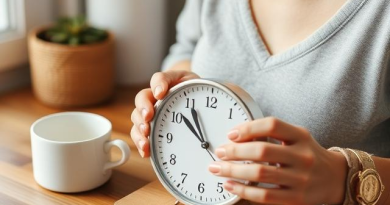Natural Ways to Reduce Stress and Anxiety Without Medication

In today’s fast-paced world, stress and anxiety have become incredibly common. While occasional stress is a normal part of life, chronic stress can take a toll on your physical and mental health. The good news? There are effective, natural ways to manage stress without relying on medication.
In this post, we’ll explore simple, science-backed techniques to calm your mind and body—naturally and sustainably.
Why Managing Stress Matters
Chronic stress is linked to a wide range of health problems, including:
- Weakened immune system
- Digestive issues
- Insomnia
- Anxiety and depression
- High blood pressure and heart disease
Learning to manage stress helps protect your long-term health and improves your overall quality of life.
1. Practice Deep Breathing
Deep breathing is one of the quickest ways to activate your body’s relaxation response. It helps lower your heart rate, reduce muscle tension, and calm racing thoughts.
Try this:
- Inhale slowly through your nose for 4 seconds
- Hold for 4 seconds
- Exhale through your mouth for 6–8 seconds
- Repeat for 5–10 minutes daily
This simple technique can be done anywhere—at your desk, in bed, or during a stressful moment.
2. Move Your Body Daily
Exercise is a proven stress-reliever. Physical activity releases endorphins, which are natural mood boosters. It also reduces levels of cortisol, the body’s stress hormone.
You don’t need a gym:
- Go for a 30-minute walk
- Try yoga or stretching
- Dance to your favorite playlist
- Take the stairs instead of the elevator
Consistency matters more than intensity. Find movement you enjoy, and make it part of your routine.
3. Get Outside in Nature
Spending time in nature—also known as “green therapy”—can reduce anxiety, improve mood, and boost mental clarity. Even short exposure to natural environments has benefits.
Ways to connect with nature:
- Walk in a park or forest
- Sit by a lake or beach
- Garden or tend to houseplants
- Enjoy sunrise or sunset without distractions
Nature reminds the mind and body to slow down.
4. Limit Stimulants and Screen Time
Too much caffeine or screen exposure—especially before bed—can increase stress, interfere with sleep, and make it harder to relax.
Try to:
- Cut off caffeine after mid-afternoon
- Set screen-free times, especially in the evening
- Use blue light filters if you need to work late
- Prioritize real-life social connection over digital scrolling
Your brain needs downtime, not just sleep.
5. Create a Relaxing Bedtime Routine
Quality sleep is essential for emotional regulation. Lack of sleep increases anxiety and makes it harder to cope with everyday stress.
Tips to improve sleep:
- Stick to a consistent bedtime and wake-up time
- Avoid screens at least 30 minutes before bed
- Dim the lights and avoid heavy meals late at night
- Try reading, light stretching, or calming music before sleep
Your evening habits directly affect your next day’s mood.
6. Practice Mindfulness or Meditation
Mindfulness is the practice of being fully present in the moment—without judgment. Even just a few minutes per day can help reduce worry, overthinking, and emotional reactivity.
Start with:
- 5 minutes of guided meditation (apps like Calm or Insight Timer)
- Journaling a few things you’re grateful for
- Sitting quietly and noticing your breath
Mindfulness brings your attention back to the now—where stress can’t live.
7. Stay Connected to Others
Talking to someone you trust can relieve emotional tension and provide perspective. Whether it’s a friend, family member, or therapist, social support is a powerful stress buffer.
If you’re feeling isolated:
- Call or text someone you care about
- Join a support group or local class
- Volunteer or engage in community activities
Human connection is healing.
8. Simplify Your Commitments
Overcommitting leads to overwhelm. Learning to say “no” and setting boundaries helps you protect your energy and mental health.
Ask yourself:
- What truly needs my attention?
- What can I delegate or delay?
- What activities actually energize me?
Simplicity reduces stress more than perfection ever will.
Final Thoughts: Managing Stress Is a Daily Practice
Stress is a part of life, but it doesn’t have to control your life. By making small, consistent changes to your habits, you can build a lifestyle that protects your peace of mind and supports your emotional resilience.
The best time to take care of your mental health is before it becomes a crisis. Start today—with one breath, one walk, or one choice that honors your well-being.



